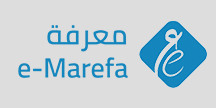Doing the prohibited acts according to the necessity situation in the Zalmy perspective: An Analytical and Evaluative study
DOI:
https://doi.org/10.21271/zjhs.26.2.3Keywords:
necessity, prohibition, permissibility, responsibilityAbstract
This research focused on clarifying the concepts of the vocabularies contained in the title such as prohibited and necessity, besides two other concepts which are permitted and lawful. The problem of the research raises the relationship between doing the prohibited act in the view of Mustafa Al-Zalami, and then the evaluation of his theory according to the criteria and principles of Islamic jurisprudence. The analytical and evaluation methods are used in this research. The importance of the research appears in clarifying the areas in which the taxpayer can resort to the prohibited act out of necessity and the resulting jurisprudential rulings from the religious and judicial aspects. One of the most important findings of the research is that doing the prohibited act if it is related to the rights of God is an impediment to responsibility absolutely and does not result in anything, but if it is related to the rights of people, it is an impediment to criminal and not civil liability.
Downloads
Published
How to Cite
Issue
Section
License
Copyright (c) 2022 Zanco Journal of Humanity Sciences

This work is licensed under a Creative Commons Attribution-NonCommercial-ShareAlike 4.0 International License.
Except where otherwise noted, content on this site is licenced
under a Creative Commons Attribution License 4.0 (CC BY- 4.0)









